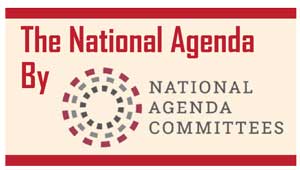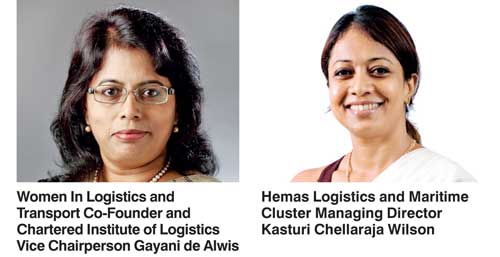Wednesday Feb 25, 2026
Wednesday Feb 25, 2026
Thursday, 2 November 2017 00:00 - - {{hitsCtrl.values.hits}}
Striving for greater gender equality has been a core development objective across countries, as a matter of smarter economics, productively enhancement, and achieving better socio-economic outcomes. The maritime and shipping industry in particular has identified the need to advance women’s role in the sector, and for good reason.
The International Transport Workers’ Federation estimates that only 2% of the world’s maritime workforce is made up of women. With Sri Lanka’s goal of becoming an international maritime and shipping hub, how does the country’s maritime and shipping industry perform in terms of female representation? What are the opportunities and challenges for women in the industry? What can corporates do to increase female representation?
To discuss this Shenali de Silva, Research Associate of the Ceylon Chamber of Commerce, sat down with Gayani de Alwis, Co-Founder of Women In Logistics and Transport and Vice Chairperson of the Chartered Institute of Logistics and Kasturi Chellaraja Wilson, Managing Director of the Hemas Logistics and Maritime Cluster. These two eminent personalities in the maritime and shipping industry are both members of the Chamber’s National Agenda Committee on Logistics and Transport.
Preconceived notions about the logistics industry are limiting female participation; however, ample opportunities exist for women and the unique skills they posses
At the outset of the discussion, both Gayani and Kasturi observe that, while participation in the industry is low, the industry’s drive to evolve and become a competitive logistics hub is opening up the opportunity for greater female participation. The lack of representation however, is largely due to preconceived notions of the industry and the perception that the roles the industry has to offer are not a “woman’s job”.
Changing these notions, and paving the way to becoming an international shipping and logistics hub, requires educating women about the opportunities available in the industry. Both interviewees agree that ample opportunities exist and women are indeed capable of taking on the demands of these roles.
Gayani highlighted that “We need to create greater awareness, we need to show them the opportunities available across different verticals, and what the jobs and their roles entail. Some roles are dismissed as they believe that they entail only physical labour, however with technological advancements there are more analytical roles where women would thrive.” The transition of Sri Lanka from a traditional haulage logistics country to a third-part logistics provider requires a workforce with a unique skillset. These skills would largely be required for process re-engineering, understanding the impact to customers and extensive analysis of data. This in turn is creating a need for a new breed of employees with analytical skills, collaborative skills, negotiation skills and an empathetic work ethic, all of which are inherently possessed by women. Women are thereby increasingly becoming an integral part to the industry and have a key role to play in the transformation of the industry.
Is there equal opportunity and equal pay?
While observing that there is in fact equal opportunity for women, especially in larger and better structured organisations, Kasturi also notes that as an industry women are less favoured due to the commitments they would have in the other roles that they play, such as that of a mother or a caregiver. She emphasised on creating a conducive culture – “But does the culture allow the woman to perform there? I see that as a bigger challenge even though we give equal opportunity, I find women who come into the Maritime and Logistics cluster find it difficult to adjust to the environment.”
Women themselves need to be a driving force in equal opportunity and equal pay. Both Gayani and Kasturi concede that women sell themselves short and bargain less at entry point, which has a significant long term impact to their careers. A fundamental change in the mind-set of women is likely to have a ripple effect and challenge tradition notions of women and their contribution to the shipping and logistics industry
Kasturi: “Do women sell themselves well enough? I don’t think so. I feel women bargain less at entry point, so there is an indirect impact when you go up because you have entered at a different level. So, I guess there is an unconscious differential.”
Gayani: “By nature, we are not geared to market ourselves and we feel that the company must understand our potential and then pay us for what we’re worth. That doesn’t happen in the corporate world, so we have to be aware of not selling ourselves short.”
Creating a conducive environment for women to thrive is of paramount importance
While some companies have been quick to identify the importance of equal opportunity in the workforce, Kasturi questions if these companies encourage a culture which allows women to perform?
Kasturi stressed that, “The policies that organisations have, need to be geared towards retaining the female workforce and not encouraging them to leave due to the various other roles they take on.”
A larger challenge, which is at the core of helping women thrive in the industry, would be changing the industry’s perception on the importance of female participation and contribution. Therefore, creating a conducive culture and environment is of paramount importance. Greater female participation however, is only half of the battle. Retaining top female talent requires having the right policies in place. Facilities such as a crèche, flexible working hours, and split jobs are likely to attract greater female participation and encourage a long term commitment to their roles.